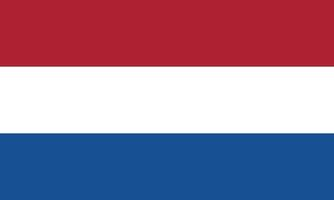Today marks World ME/CFS Day, an important day given the fact that still much remains unknown about the causes of ME/CFS. In addition to the need for more biomedical research into the disease, recognition and education about ME/CFS are crucial.
How do we ensure timely diagnosis of the disease and take patients’ experiences seriously? A critical first step is to enhance education among current and future healthcare providers treating ME/CFS patients.

Brent Appelman, physician-researcher at Amsterdam UMC and researcher within the NMCB, underscores the significance of greater education about ME/CFS in healthcare: “Given the severity and disabling symptoms of post-infectious diseases, it’s crucial that these conditions become an integral part of medical education. This ensures that future physicians not only recognize these diseases in a timely manner, but also implement necessary follow-up steps.”
“The introduction of ME/CFS and PAIS patients into the healthcare system typically occurs through general practitioners,” adds Ruud Raijmakers, general practitioner in training and researcher within the NMCB. “Therefore, it’s essential that protocols for recognition and management of these patients within primary care are in place.” One of the goals of the NMCB is to promote education about ME/CFS, as well as to establish standard protocols for managing ME/CFS.
The patient associations MECVS Nederland, ME/cvs Vereniging, and the Steungroep ME en Arbeidsongeschiktheid have long been advocating for more education about ME/CFS for doctors and healthcare providers. For this purpose, they have created a brochure ME/CFS – Information for healthcare providers about what is currently known about ME/CFS and how they can assist patients with this illness. The content is based on the revised NICE guideline for ME/CFS from 2021 and the advice on ME/CFS from the Health Council of the Netherlands from 2018.
Thanks to the ME/CFS research program funded by ZonMw, the NMCB consortium can dedicate the coming years to advancing biomedical research on ME/CFS, uncovering more about its causes, diagnosis, and treatments. This effort is not only for patients but also by patients themselves. Project leader Jos Bosch emphasizes the role of patient representatives within the NMCB: “Patients are our partners. They have guided the design and implementation of the NMCB from the outset. On World ME Awareness Day, we want to emphasize that their experiences and insights are the driving force behind our mission to better understand and treat ME/CFS.”
In June, the NMCB will begin testing all protocols of the Patient Cohort and Biobank, after which recruitment of ME/CFS patients will scale up in the following months.
Would you like to stay informed about how and when you can participate in research as a patient? Visit our Get Involved page for more information.
